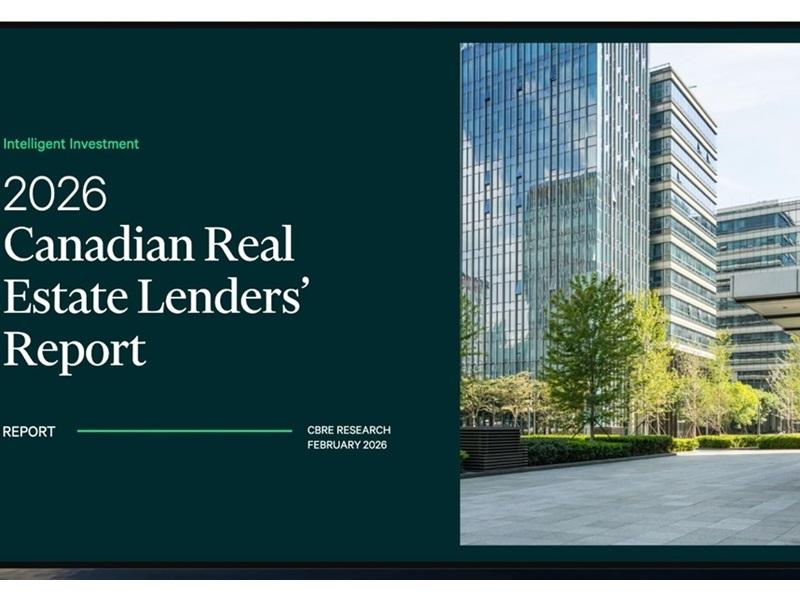
The signs are very positive for investors who are already in or are hoping to buy into Montreal’s multifamily market, says Mark Sinnett, executive vice-president and head of financial markets, Quebec, Avison Young.
Demand for rentals “is greatly surpassing supply” and there is “a profound imbalance” between supply and demand that will persist for the medium and long term.
Sinnett was speaking during an update on transaction activity and investments in Quebec’s multiresidential market at the Quebec Apartment Investment Conference Feb. 28 at Montreal’s convention centre.
He noted rents have increased by an average of 6.2 per cent annually in Montreal between 2019 and 2023. Meanwhile, vacancy rates have been declining and are now at 1.5 per cent.
And while Montreal’s population increased by an average of 0.64 per cent over the last four quarters, there has been a gradual 11 per cent decline in investment in multiresidential construction between late 2021 and late 2023.
Sinnett said the purpose of real estate is to generate positive cash flow over the long term and the fundamentals he is seeing in the Montreal market are “exceptional.” Any investor who invests today will see “extremely positive” long-term results, he said.
Montreal rents remain "under-market"
In a similar vein, Jeffrey Soliman, president and commercial mortgage broker at VA Capital, said current interest rates are not exceedingly high, making it a good time to invest in multifamily.
“If you’re a good builder and know exactly how to manage and operate your multifamily properties, you should be able to do very well in this market.”
Soliman said he is a firm believer in rental-rate growth and that Montreal “is very under-market when it comes to rental rates,” despite the recent increases.
There is runway for rental rate growth in Montreal, he said, because disposable income in Quebec is very high and the cost of living in the city does not come close to Toronto or Vancouver.
Despite Montreal’s strong rental growth and low vacancy rates, Montreal had somewhat less than a record 2023 when it came to multifamily transactions.
Sinnett said volatility in capital markets resulted in a 30 per cent drop in investments in multifamily properties and a 47 per cent decline in such transactions in 2023 compared to the previous year in Montreal.
As a result, the average unit cost dropped from $240,000 in 2022 to $205,000 last year in Montreal.
Quebec's largest multifamily transactions
He said the largest transaction last year in the province was not in Montreal but in Quebec City: Groupe Mach’s $563 million acquisition of the 1,871-unit Groupe Huot portfolio, for an average price of $300,909 per unit.
Groupe Mach is already the No. 1 owner of commercial real estate in Quebec and the Groupe Huot acquisition makes it the third-largest owner of residential properties in the province, he said.
As for the Montreal area, CAPREIT’s $37.6 million sale in the second quarter of its 235-unit South Shore portfolio to a consortium of private investors stood out as one of the year’s biggest transactions in the city.
Marc Hétu, director, RBC Capital Markets, noted institutional buyers, who are being cautious with their liquidity, have largely fled the Montreal market when it comes to multifamily transactions of more than $10 million.
Last year, private buyers became more opportunistic and represented 81 per cent of buyers of these properties. By comparison, private buyers comprised only 51 per cent of buyers between 2018 and 2022.
Sinnett said monthly rents for new builds in Montreal in 2019 and 2020 were in the $2 to $2.50 range per square foot and these buildings would be rented in six to 12 months.
However, given increased construction and financing costs, asking rents for new projects in Montreal are now trending north of $3 per square foot, with some going as high as $4 or $4.25 per square foot per month.
“We’re talking about asking rents that are almost double what they were five years ago,” he said.
Sinnett said such high rents make it harder to rent out these new developments, noting it can take a year to up to 18 months to rent out new buildings with more than 100 units. Aside from losses in rental income, owners of such properties see lower ancillary revenues for things like parking and storage.
As for 2024, Sinnett expects there to be a greater investment focus on suburbs and secondary markets in the province because of their affordability and potential for growth in net operating income.










